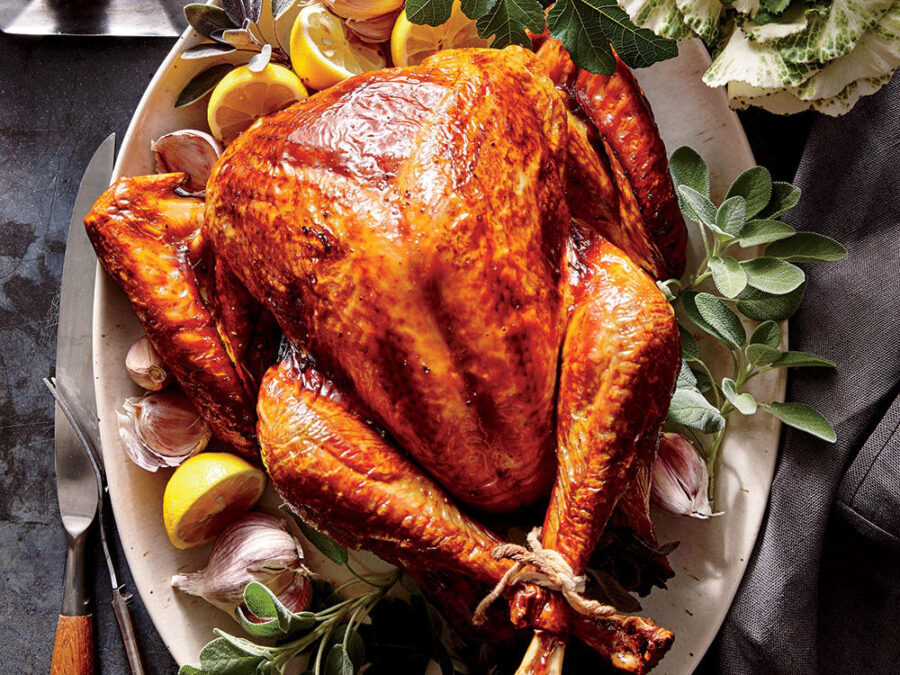The time was almost ten years ago precisely. Maybe you remember the shocking video I was watching. On my screen was Sarah Palin (in one of her many regrettable public moments), conducting an outdoor interview about pardoning turkeys, casually sipping her coffee, while two turkeys were being strangled to death behind her. I have neither the heart nor stomach to post the video—it isn’t hard to find on your own if you’re so-inclined.

The point of sharing this is not to point out the cruelty (or stupidity) of capturing the moment on video. My main concern as a practicing Christian was that this was the first time I realized that turkey farmers strangle their turkeys. Perhaps you’re not following.
I am of the (perhaps quirky) belief that the Apostolic Decree of Acts 15 firmly applies to all Gentile Christians today. Acts 15 describes a watershed moment in church history, where the leaders of the early church (known to us as the Jerusalem Council) instituted the manner in which Gentiles and Jewish believers were to live together in light of the Torah and its regulations for God’s people in the new age of the Spirit. Instead of saddling Gentile believers with the whole complement of Jewish law, recognizing that God has now received Gentiles into his covenant people as Gentiles, the Apostolic Decree decided that the Jewish Law places only these four regulations on Gentile believers (Christian teaching imposes many others):
- Abstain from food sacrificed to idols
- Abstain from blood (consumption)
- Abstain from meat that has been strangled
- Abstain from sexual immorality (porneia)
The Problem
If the Apostolic Decree is “on the books” for Gentile believers in Christ, and turkeys are “strangled,” shouldn’t we pass on the turkey every Thanksgiving? When I went to research the issue, the problem grew strangely more complicated. I found out that not only were some turkeys strangled, in order to appease halal regulations for Muslims, several major turkey preparers (including Butterball), prayerfully devoted each turkey to allah before the moment of killing. If we hold that offering turkey prayers to allah is akin to meat sacrificed to idols, this signifies a Double Whammy for Thanksgiving Turkey-consuming Christians who hold to the four provisions of the Apostolic Decree. Tofurkey, anyone?
Does the Apostolic Decree Even Matter Today?
Let’s back up. First of all, most of the food that we consume today, including our meat supply, does not run afoul of the Apostolic Decree (one of many reasons why these issues never come up as an issue in churches). Contrary to popular belief, rare steak does not contain blood (that red fluid is myoglobin of the muscle fibers). Furthermore, we simply no longer live in a world in which food sacrificed to idols is a thing that concerns modern folk the way it troubled the earliest Christians.

Not blood, don’t worry.
Second, we should not dismiss the Apostolic Decree as Christians today. Scripture never tells us these prohibitions no longer apply. In fact, we find to the contrary that the earliest churches continued to abide by these regulations. The discussion of porneia and idol food in 1 Corinthians may have demonstrated just how important these matters were in sorting out the Corinthians’ identity as living “no longer as Gentiles” (1 Cor 12:2). The reference in Rev 2:14 to “food sacrificed to idols and practicing sexual immorality” also evince an importance on these rules for prescribing distinctly Gentile Christian behavior. (See also, Siby. Or. 2:96; Didache 6:3).
The nature of these four prohibitions did not mean that the remainder of Torah was set aside or essentialized for Gentile Christians. These four prohibitions were taken from Leviticus 17 as prescribing precisely those regulations that apply to aliens (gentiles) who live “in the midst (בתוך) of Israel.” (Lev. 17:8, 10, 12, 13; 18:26; cf. Acts 15:29). The Apostolic Decree at the time applied the Torah quite seriously, expecting Jewish Christians to remain practicing the Law as its own standard of practice and halakah (walking). Gentile believers in the Messiah were not seen as replacing Israel, but joining in God’s eschatological people of the Spirit, who are now brought in the midst of Israel. Accordingly, Gentiles are not law-free people, but rather under the distinct guardianship of the four commandments placed upon them for their distinctive character as God’s people as far as Torah was concerned. Christian teaching rounded out much of their remaining instruction, much of which encapsulated the heart of the Ten Commandments (cf. Rom 13:8–10; Col 3:5–17). For more on this, I recommend Richard Bauckham’s important article entitled, “James and the Jerusalem Church”.
That Christians today fail to give the Decree any serious consideration may well reflect the fact that much of its underlying reasoning (Gentile inclusion into the temple-worshiping Jewish community) no longer plays out in the world stage today. Much of the cohesive and repulsive forces that strung the taut balance of the churches of the New Testament world were sadly dismantled and torn apart with the destruction of the Jerusalem Temple and the various “partings of the ways.” To live now as Gentile aliens “in the midst of Israel” is akin to partaking in a game of basketball without a court and proper equipment. Over time, the social dynamics of Scripture were relocated to other areas throughout the church’s history (primarily to areas of doctrine and creed). The differences of Jew and Gentile in the Scriptural world are today read strictly metaphorically as signifying all manner of cultural difference and exclusivity that needs to be overcome by “spiritual” transcendence.
I would like to point out that the importance of the Apostolic Decree still matters with regard to one highly crucial aspect. While idol food may not be a thing today, porneia (sexual immorality) is. That pornography thrives not only in the world, but is permitted to reign unchecked among our church members, should be denounced in the clearest possible terms. I can be of no other opinion as one who cares deeply about the church that we are presently marked by appalling disobedience to some of the most fundamental laws that are intended to characterize our life as God’s people.
Back to Turkeys
After email and discussion with representatives from Zacky Farms and Butterball, here’s what I learned. It turns out that while turkeys are initially strangled for pacification, their blood is properly drained in keeping with Christian and Jewish scruples. Turkeys are not slaughtered in the name of allah by prayer (although a portion of their turkeys are set aside for such prayers where requested by Muslim purchasers). So yes, as you must have already known, there are no biblical mandates violated by having turkey at Thanksgiving.
An Appeal to Lower Meat Consumption
But as you may have anticipated, this doesn’t quite end the discussion. I have since learned in my research that all is not well in the meat preparation industry (no surprises here, but perhaps you are like me in remaining willfully ignorant in matters of food). Without even trying, it is impossible to be unaware of the stark reality of animal cruelty, overproduction, and the distinct costs our meat industry bears upon our eco-system. That Christians have freedom to partake in all manner of food is not the same thing as deciding that Christians should eat all things freely.
I no longer regard food consumption as a neutral issue in light of the impact that our appetite for meat consumption continues to have on our environment and upon vulnerable persons affected by the industry. It behooves Christians to at least consider significant and collective reduction in our overall meat consumption. While Scripture is clear that we have been granted dominion and stewardship to eat all manner of food, we must honestly confront the fact that the current machinery of the meat industry, its proliferation of biomass and greenhouse gases, and its impact on vulnerable people cannot be meaningfully squared with right stewardship.
Reducing animal protein will not only dramatically create some significant health advantages, it will alleviate the overall impact on our environment. If more people in the world participated in “Meatless Mondays,” the impact of removing meat for one day out of the week is the equivalent of taking 7.6 million cars off the road. These are significant strides that we can make together. I am not a vegetarian. Those talks are ongoing, but our family has committed to reducing our animal-protein consumption for some of these reasons. Perhaps you can consider joining the many of us who do so for the sake of our planet and for other people.
For more on this, from the perspective of Christian identity, I heartily recommend John Barclay’s, “Food, Christian Identity and Global Warming.”





1 Comment
Leave your reply.